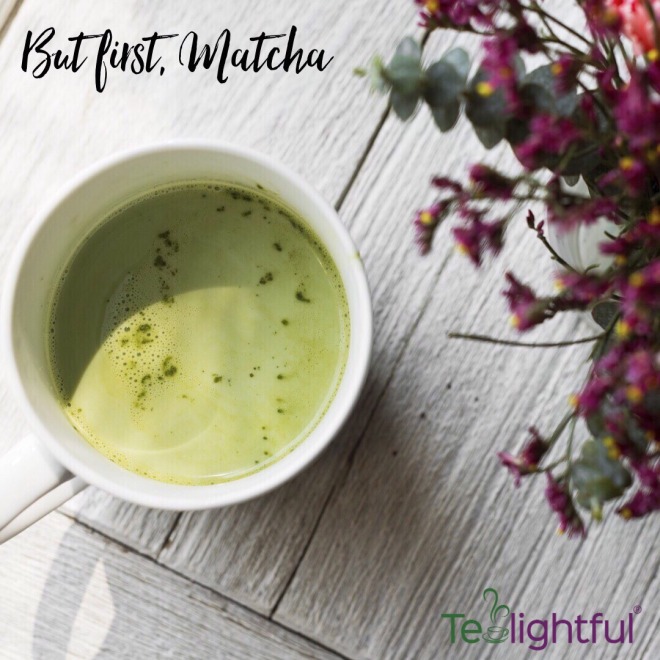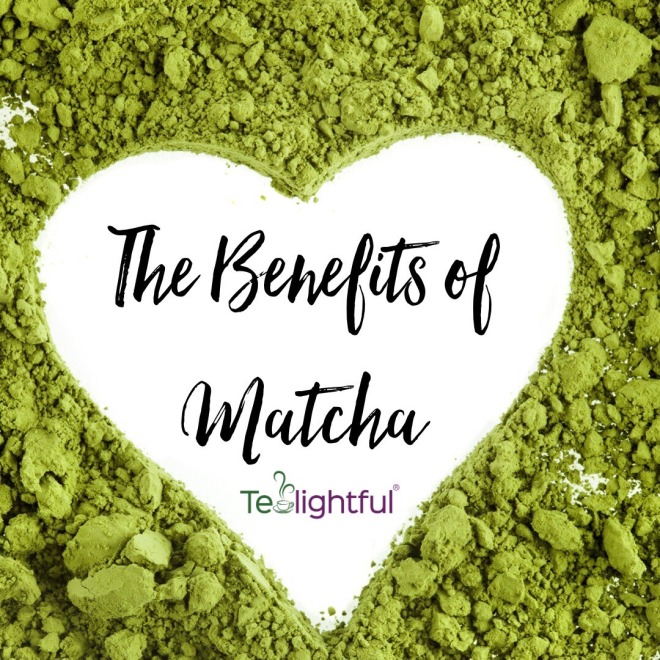Matcha has become mainstream in terms of popularity lately and has quickly won over the hearts of health enthusiasts. It has become such an “it” drink that even die hard coffee drinkers are making the switch.

Why? Matcha is incredibly beneficial. Truly. The benefits of matcha are not just hype — they are backed by sound research. Quite literally, it means “powdered tea.” It is so much more, though.
What is matcha?
Matcha is a powdered green tea. Green tea is so healthy. Science has shown us that. It is rich in protective antioxidants. Think of how you prepare your regular cup of loose leaf green tea. You steep the leaves and then you discard them. You are not actually consuming the leaves. With matcha, the leaves have been finely powdered.
Did you know? Interesting to note is that matcha is prepared a bit differently while grown. The plants are shaded in order to grow leaves with improved flavor and texture before they are dried and ground.
The connection between matcha and improved mental clarity
Matcha was introduced to Japan in 1191 by Eisai, a Buddhist monk. Eisai is believed to have planted the first green tea seeds in Japan. He is even more well known for having developed the philosophy known as Zen. Since that time, matcha and Zen meditation have been intertwined through the tea ceremony. It is believed that Buddhist monks drank matcha to help them feel grounded and calm with a sense of clarity while meditating for long periods of time. The tradition has continued centuries later.
Matcha is not your typical green tea — it may take ten cups of green tea to give you the benefits of just one cup of matcha. What is unique about this drink, as opposed to a cup of coffee, is that it is believed to increase your mental clarity while making you feel at peace. Next time you head to the yoga studio, try sipping matcha — it will allow you to be in the moment while being better able to concentrate on each pose.
 Matcha is an antioxidant powerhouse.
Matcha is an antioxidant powerhouse.
Antioxidants help to fight damage from free radicals. There is likely no better drink than matcha to provide your body with antioxidant protection. In fact, in a study published in the Journal of Chromatography, researchers found that matcha provides 137 times more EGCG than traditional green tea leaves. EGCG stands for epigallocatechin gallate, which is the health boosting compound found in green tea.
Matcha may help you burn more calories.
Research shows that EGCGs help boost the process of fat metabolism. This helps you burn more calories more quickly. In fact, you may be able to burn 25% more calories because of the EGCGs in your cup of matcha.
Matcha may help you feel more energetic.
We all could use a bit more energy from time to time, but it is important to choose wisely when fueling our bodies with energy sources. For example, some of the energy drinks on the market can make your heart race and have been linked to serious health conditions. Matcha, like coffee or energy drinks, does contain caffeine. What is unique, though, is that matcha contains something called L-Theanine, which is an amino acid that is believed to work in harmony with the caffeine in matcha.
This is important because you won’t get that dreaded “crash” feeling. Have you ever had espresso or cup after cup of strong coffee in an effort to stay awake longer? At first, you feel energetic and then, WHAM, you feel groggy and exhausted. You are no longer energized. That is because the caffeine comes all at once.
Matcha, though, provides you with a gradual release of energy so the feeling is sustained without that “crash.”
